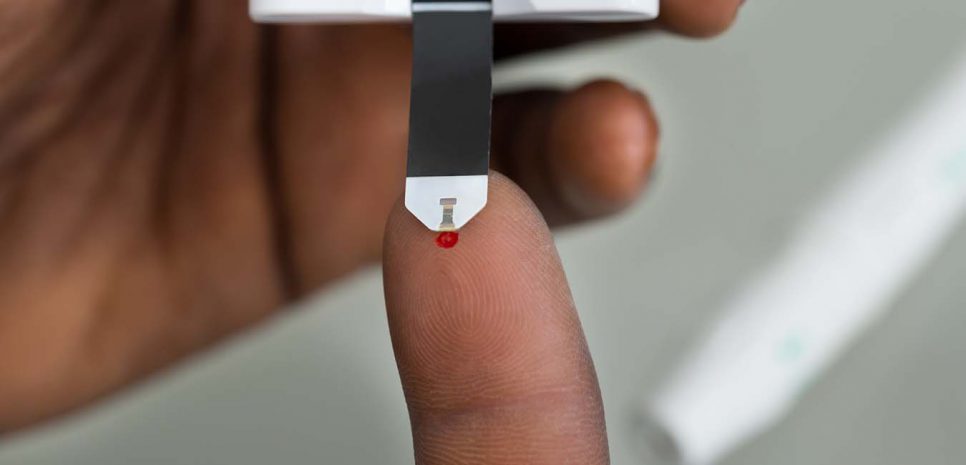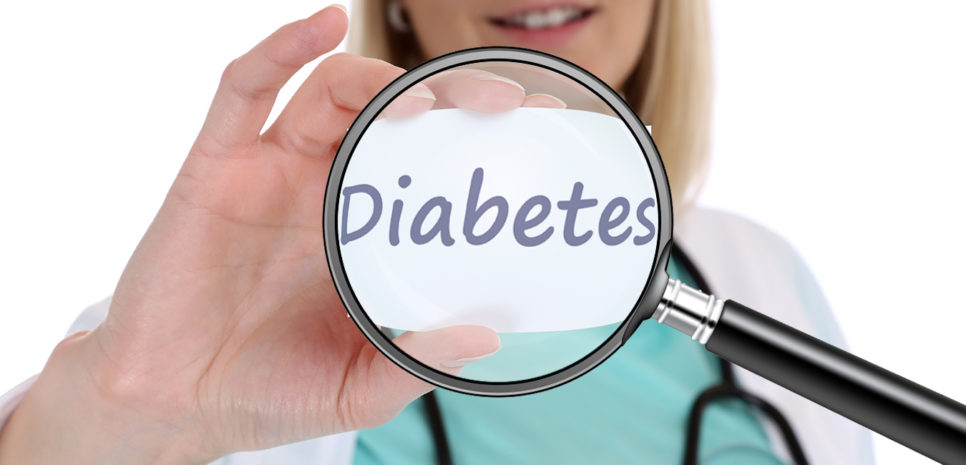The risks might be greater than the benefits. But talk to your doctor before you make a change. Many people take a low-dose aspirin (75-100 mg) every day to protect their heart. But new guidelines may be changing this common practice. The US Preventive Service Task Force makes recommendations to doctors for patient care. Recently it warned that aspirin may …
COVID-19 and Your Metabolic Health
You probably already know that people with heart problems, obesity, and diabetes have a higher risk with COVID-19. These conditions increase the chances that you will need to be hospitalized, require a ventilator, and have long-lasting problems because of COVID. Researchers are beginning to understand the links between these diseases and COVID a lot better. They have found that the …
Get Moving to Lower Stroke Risk
The COVID-19 pandemic and lockdown changed the fitness habits of most Americans. But many people still haven’t started exercising again. Here’s a good reason to do it: A new study in the journal Stroke found that the less active people were, the higher their risk for stroke. A stroke happens when a blood clot cuts off the blood supply to your …
Did You Know? Prediabetes can Harm Your Heart
If you have diabetes, you probably know that you have a higher risk for heart problems. But you may not know that you have a higher risk for heart attacks and strokes if you have prediabetes—a condition where your blood sugar is high but not high enough to be diabetes. A new study, presented at an American College of Cardiology …
Does BMI Measure Up?
Quick: What is your BMI? Even if you don’t know your score on this important health measure, you may know that it has something to do with your weight. BMI stands for Body Mass Index, and it is a ratio of a person’s weight to their height. Calculate yours here. Depending on your score, you will fall into 1 of …
A New Way to Help Your Heart: Stretch!
You stretch to make your body more flexible and less stiff. But did you know it can do the same for your blood vessels? It’s true. New research from the University of Milan in Italy showed that a 12-week stretching regimen improved blood flow, lowered blood pressure, and decreased the stiffness of arteries. Good blood flow leads to less damage …
Tai Chi Boosts Heart Health!
More and more people are taking up Tai Chi to improve their health. Did you know that this ancient martial art has a number of important benefits for the heart? Tai Chi involves a series of graceful, gentle movements that can get your heart rate up while also relaxing your mind. It’s been called meditation in motion. Many people find …
Battling Quarantine Weight Gain
Restrictions on some activities are starting to lift around the country, so it’s a good time to take stock of your health. Weeks under lockdown due to the coronavirus pandemic have been challenging! Here’s what’s happening in many households: Less exercise Many people are getting less physical activity than they used to. Gyms and exercise studios may still be closed …
Exercise at Home to Help Stay Healthy and Prevent Illness
Across the country, people are staying home in order to help stop the spread of the coronavirus and to stay healthy. That means many of us are suddenly less active than we used to be. If you’re self-isolating, you’re not exercising at the gym, taking an on-site yoga class, shopping at the mall, running your usual errands, or even walking …
Do Pets Help Your Heart?
We all know how great our pet dogs and cats make us feel. They become full-fledged members of our families. But a number of studies suggest that our furry friends also help our hearts in many ways. For starters, they help get us off the couch. If you have a dog, you probably walk it. It turns out that research …
A Heart Month Special Report: The Surprising Facts About Women in Your Life and Heart Disease
Heart disease is the top killer of men and women, but it affects men and women differently. It’s important to understand the differences to protect the hearts and lives of women and help them get the best care. For Heart Month, we look at some of the differences between men and women. In the past, experts used to think women’s …
The Skinny on Belly Fat
The band of fat around your waistline can make it harder to zip up your favorite pants. But that’s not the worst problem with it. Fat that surrounds your organs in the belly is linked to a greater risk for heart disease and other health problems. This deep belly fat is called “visceral” fat. It is linked to high blood …
The Heart Benefits of Seeking Green
Everyone knows a walk in the park or the woods is good for the soul. But did you know it might also be good for your heart? More and more research shows that spending time in green spaces boosts heart health. In a study in the Journal of the American Heart Association in 2018, researchers found that people who lived …
The Surprising Link Between Arthritis and Your Heart
It’s not fun dealing with the aches and pains of arthritis. This “wear and tear” on joints like the hips and the knees often comes with aging. But people who have this type of joint pain may now have a new concern—a higher risk of dying from heart disease. A new study tracked the health of 469,177 people ages 45 …
Move! A Little Activity Goes a Long Way for Your Heart
You probably know that you need to exercise to have a healthy heart. But you might be surprised at how little activity it takes. A new study in the British Journal of Sports Medicine found that moving just 10 minutes a week helped. Researchers looked at surveys the government collected from more than 88,000 Americans, ages 40 to 85, from …
The Surprising Link Between Depression and Heart Disease
You might have heard that people who are depressed are more likely to have heart disease. People who have heart disease are also more likely to get the blues. Having both heart disease and depression is worse for your health than just having heart disease. A 2017 study found that people diagnosed with depression after they’d had a heart attack …
Young women, heart attacks and how to prevent them
Here’s some good news about heart disease, the number one killer of Americans: the rate of heart attacks and strokes is dropping and has been for decades. That means you are less likely to develop these problems than in the past. But there’s bad news, too: heart attacks are striking more young people, particularly younger women. New research shows that …
Can Energy Drinks Harm Your Heart?
Energy drinks are popular with people who want a power boost, including children and athletes. But these drinks, which contain caffeine, sugar, herbs, and other ingredients, may do more harm than good. A recent study from the University of Texas Health Science Center in Houston found that having just one energy drink had a bad effect on the flow of …
The Heart Risk That Comes with Winter
You might be enjoying the cooler air as the seasons change. But winter weather has a downside: It can raise your risk for heart problems. A new study in the journal JAMA Cardiology found that there’s a big jump in heart attacks when the forecast includes cold temperatures, a strong wind, low sunlight, and low pressure in the atmosphere. They …
5 Everyday Habits to Lower Inflammation and Help Your Heart and Brain Health
It can take years for hidden inflammation to harm your health, raising your risk for heart attacks and stroke. Fortunately this damage can be reversed. Over time, a poor diet (too much sugar, for example), lack of exercise, a smoking habit, and other personal lifestyle choices may lead to low levels of long-term, continuing inflammation. This type of inflammation can …
High-Intensity Interval Training and Your Heart
A Little Exercise Goes a Long Way for Your Heart Scientists agree: There is little that’s more beneficial to your heart than exercise. But today’s busy schedules can make it hard to establish a regular routine. Fortunately, researchers are finding that it’s not necessary to run marathons or spend long hours on the treadmill to get substantial cardiovascular perks. More …
Festivities Ahead? Strategize to Keep the Holidays Healthy and Heart-Smart
There’s good news and bad news when it comes to the holidays and your health. The good news: Research shows that the average American puts on just about a pound between Thanksgiving and New Year’s Day (though heavier people add more than five pounds). The bad news: Most people never shed the extra weight, according to a study in the …
Novel Clues to Your Diabetes Risk
About 30 million Americans — more than 9 percent of the population — currently have diabetes, and one in three Americans is expected to have diabetes by 2050. Diabetes happens when your blood glucose, or blood sugar, levels are too high. Over time, the extra glucose can wreak havoc on health, damaging the eyes, kidneys and nerves and leading to …
Sitting is the New Smoking
Is Sitting the New Smoking? The headlines on the health dangers of sitting are hard to ignore. Inactivity has been recognized as an independent risk factor for heart attack and stroke—as dangerous as smoking cigarettes. Now the American Heart Association (AHA) has issued a strongly worded advisory aimed at getting people up and moving, even those who are already physically …
Modifying Your Risk Factors for Heart Disease
Everyone is at risk for heart disease, but some people have more risk factors than others. Since heart disease is the leading cause of death among adults in the U.S., it’s important for us all to know what our risk factors for heart disease are, and what we can do about them. There are two types of risk factors for …
5 Ways to Tell If You Have Chronic Inflammation
Cardiovascular disease (CVD), diabetes and cancer have shared risk factors, including systemic inflammation, University of Colorado Cancer Center investigator Tim Byers, MD, MPH reported at the American Association for Cancer Research Annual Meeting 2015. For example, says Dr. Byers, “Obesity leads to a chronic inflammatory state and circulating growth factors that have adverse effects on the heart, and can also …
The Easiest Workouts to Boost Heart Health
Strenuous daily exercise may actually raise risk for heart disease, stroke and blood clots, while moderate physical activity a few times a week lowers it substantially, according to a new study of 1.1 million women published in Circulation. Not only did the study pinpoint exactly how hard and how often women should work out to get the best protection against …
6 Ways Women May Reduce Their Heart Disease Risk by 92%
Following six healthy lifestyle habits may reduce women’s risk for heart disease by 92 percent, compared to women with none of these habits, a new study published in Journal of American College of Cardiology suggests. Researchers from Harvard and other centers tracked 88,940 women whose ages were 27 to 44 at baseline over a 20-year period. With February marking American …




























